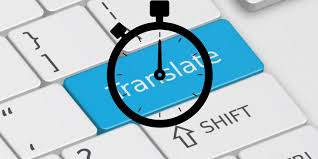In today’s global world, people and businesses often move across borders. As a result, the need for professional translation services is growing. One important area is sworn translation—especially into languages like Albanian. Due to Albania’s closer ties with other countries through migration, trade, and education, the demand for these services has increased. Sworn translations into Albanian are essential in many official situations because they provide legal confirmation that the translated document matches the original. In this article, we explain what sworn translations into Albanian are, when you need them, how the process works, and what challenges translators face.

What Are Sworn Translations?
Sworn or certified translations are official translations of documents that have legal value. Typically, a sworn translator—approved by a government body—does this work. To qualify, they must pass a formal exam and be listed in an official registry.
Besides language skills, they must know legal and formal terms. As a result, only sworn translations are accepted by courts, universities, and public institutions in Albania or countries where Albanian is required.
When Do You Need a Sworn Translation into Albanian?
Sworn translations into Albanian are needed in many cases, such as:
- Official and Legal Matters
For example, people moving to Albania or managing legal issues there often need translations of birth certificates, IDs, criminal records, or powers of attorney. - Business and Company Setup
If you’re starting a business in Albania, you’ll first need sworn translations of contracts, company statutes, financial records, or official certificates. - Education and Qualification Recognition
Similarly, students applying to Albanian schools or universities must submit sworn translations of diplomas, transcripts, and other school documents. - Residency and Citizenship
When applying for a visa, residency, or citizenship in Albania, translated and certified documents are usually required. - Vehicle Registration
In cases where vehicles are imported or exported, documents like sale contracts, registration papers, or invoices must be officially translated.
Why the Albanian Language Is Unique
Albanian is the official language of Albania. While not widely spoken worldwide, it is becoming more important in business, tourism, and education in the Balkans.
From a translator’s point of view, Albanian is challenging. This is because its grammar, sentence structure, and vocabulary are unique. As a result, translations into Albanian need expert language knowledge and cultural understanding.
How the Sworn Translation Process Works
Here’s how the process typically goes:
- Choose a Sworn Translator
First, choose a translator registered with the official authority. This ensures their qualifications meet legal standards. - Send the Documents
Next, deliver your documents in person, by email, or by post. Keep in mind that some authorities may require original copies or notarized versions. - Get a Quote and Deadline
After submitting, the translator will review the document’s length and complexity and then provide a price and deadline. - Translation Phase
During this stage, the translator accurately translates the content, including any official stamps, signatures, and formatting. Additionally, each translation includes a signed certification and an official seal. - Receive the Final Translation
Finally, you can receive the final document in person, by post, or electronically if it includes a qualified digital signature.
Who Can Become a Sworn Albanian Translator?
To work as a sworn translator for Albanian, a person must:
- First, hold a university degree.
- Then, pass a government exam (written and oral).
- Additionally, have full legal capacity.
- Lastly, not have a criminal record.
The exam also checks legal and administrative knowledge, not just language skills.
Common Challenges in Sworn Translations into Albanian
Legal and Cultural Differences
Some legal ideas in Albanian law have no direct match in other legal systems. Therefore, the translator must know both systems to bridge the gap.
Grammar and Language Complexity
Albanian has two main dialects, heavy inflection, and complex rules. Consequently, accurate translations need advanced knowledge.
Specialized Terms
In areas like medicine, law, or engineering, exact terms matter. For this reason, the translator must be confident in both languages and use tools and references to avoid mistakes.
Why You Should Choose a Professional Sworn Translator
Legal Recognition
Only sworn translations have legal value. Thus, they’re accepted by courts, embassies, and public offices.
Accurate Language
Because sworn translators ensure the right terms are used, the meaning remains clear.
Confidentiality
Moreover, they must keep your personal and legal information safe and private.
Expert Support
Beyond translation, professionals can advise you on which documents need legalization or additional stamps like an apostille.
Conclusion
Sworn translations into Albanian are vital for both individuals and businesses operating across borders. Since these translations must be clear, correct, and legally valid, they play a key role in legal cases, education, business, and official paperwork. When choosing a sworn Albanian translator, look for someone experienced, certified, and well-reviewed. Ultimately, a good translation can save you time, reduce stress, and help you succeed in your plans involving Albania.



